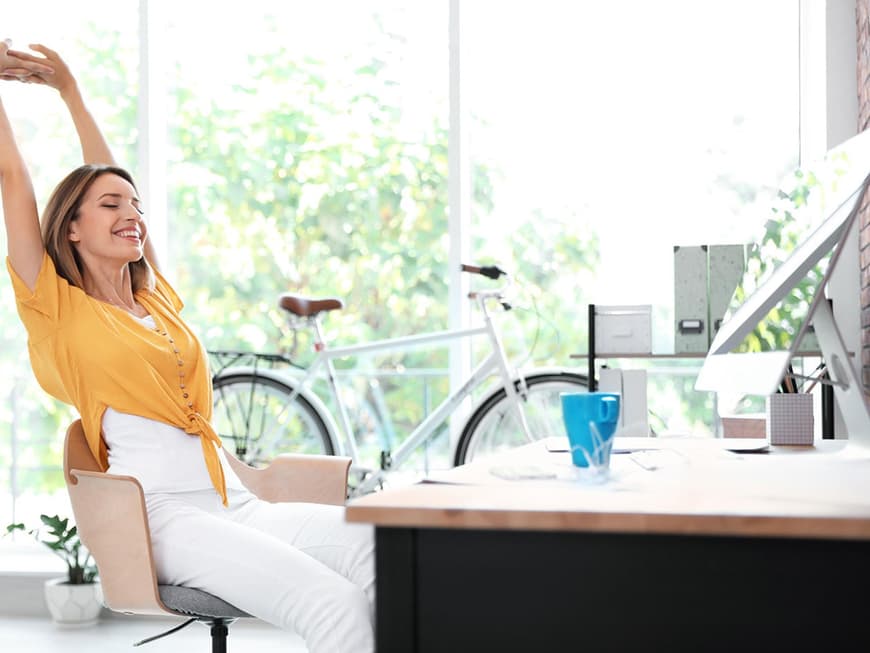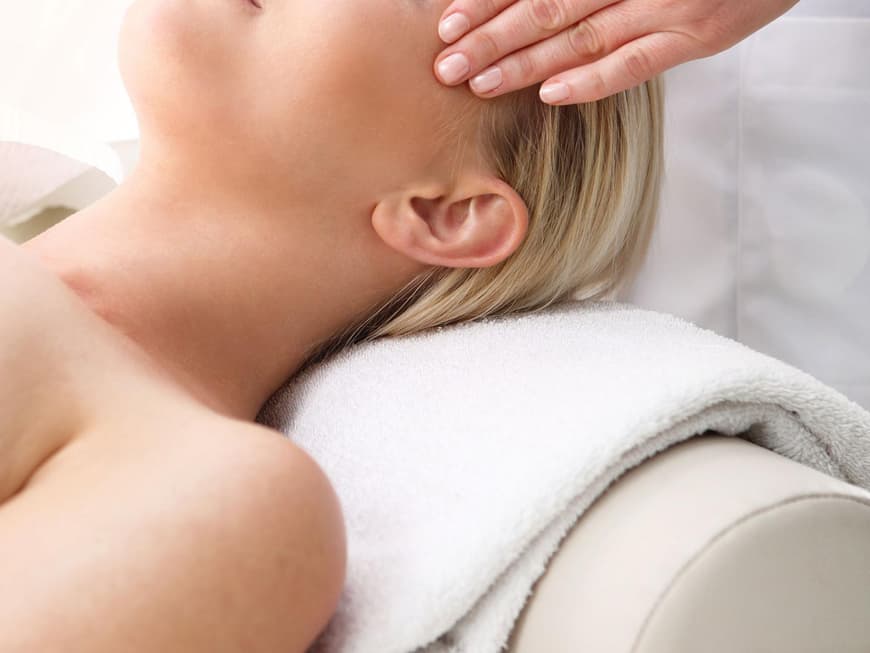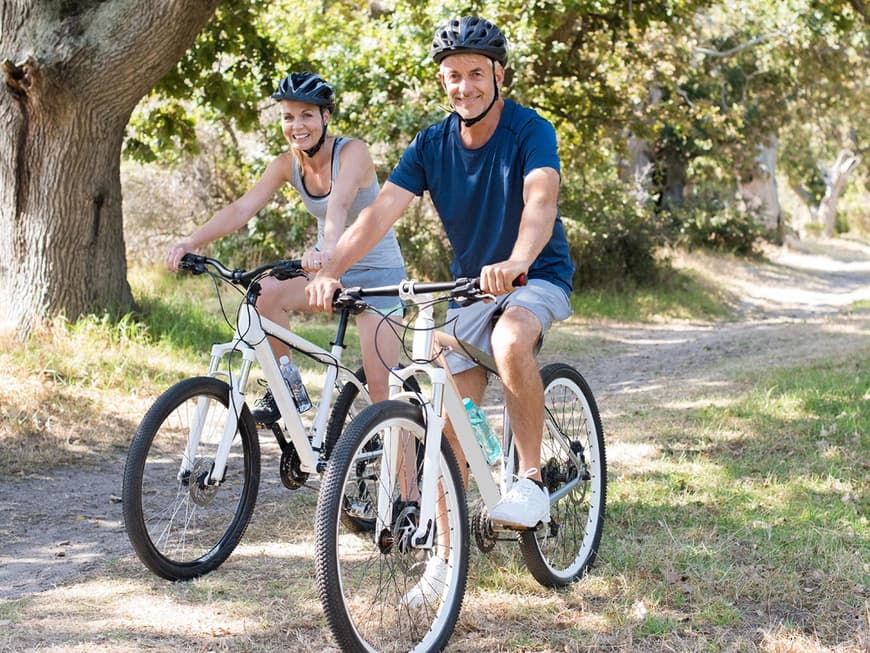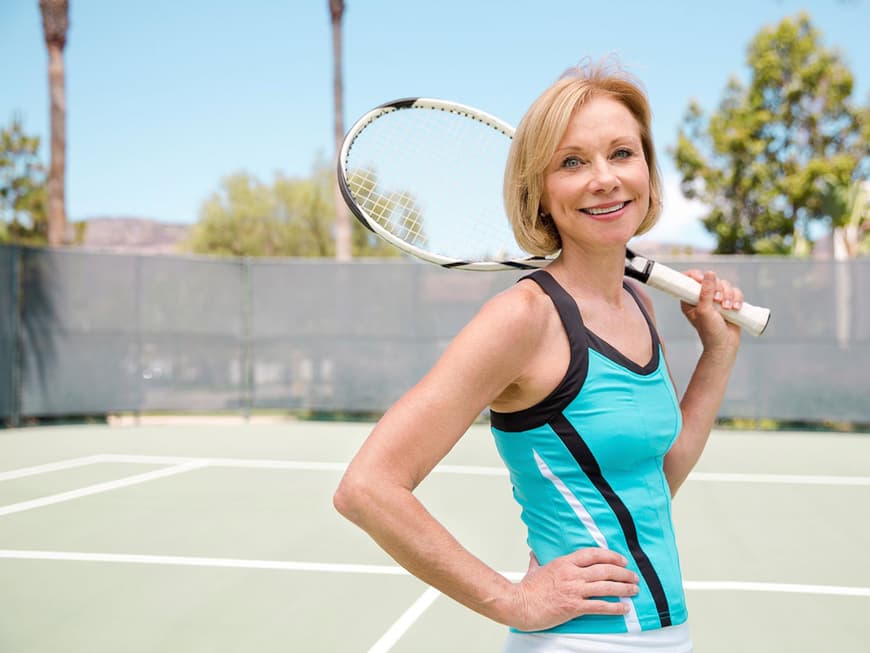How well a method works depends on the type of learner
There are many methods. To find the right one for you, author Sabine Croci advises you to first check what type of learner you are. Do you remember something best when you hear it? If you are an auditory type, a CD with instructions for progressive muscle relaxation (PMR) or autogenic training would be the right choice. Do you learn best when you read something and are visually inclined? You probably like methods that work with ideas and inner images, such as yoga, meditation, mind journeys or body scans. Or are you more the haptic type who also likes to move? If so, an anti-stress ball that you can knead occasionally would be ideal, as would a movement meditation such as Qigong or Tai Chi. These two methods are also good if you sit a lot during the day. If, on the other hand, you have to move around a lot, something calming such as autogenic training could restore your inner balance.
Blood pressure reducer: targeted muscle relaxation
Provided you exercise regularly, all methods lead to the body switching to relaxation faster and faster, reducing the release of stress hormones and lowering blood pressure. Progressive muscle relaxation seems to work particularly well. This involves briefly tensing and relaxing the muscles one after the other. This alternation of tension and relaxation relieves muscle cramps as well as emotional and mental tension. The sympathetic nervous system is also slowed down: Breathing and heart rate slow down and blood pressure drops. A study by Charité Berlin also showed that PMR improved the perception of stress and that the test subjects felt less anxiety and anger. Ideal for in between: small self-massages (e.g. stroking your face with a brush with your eyes closed) and giving yourself an encouraging smile in the mirror.
Makes life easier: stress management
The expert recommends getting to the bottom of the causes in order to change them in the long term. There are two options here: With cognitive stress management, you learn to become aware of the subjective attitudes and motives in the stress-inducing situation, question them and change them, in other words: stop making a mountain out of every molehill. Instrumental stress management is about analyzing, eliminating or reducing stressors and improving the work-life balance through time management (planning ahead, delegating, breaks). In the long term, it helps you to see land again and prevent stressful situations that cause illness.
This sport is doubly effective
Cycling Like all endurance sports, cycling is ideal for reducing stress. Instead of stamping your foot, simply pedal a little harder. The breeze helps you keep a cool head and the tour through nature is incredibly relaxing. Cycling also trains the cardiovascular system.
Swimming
Regular swimming helps to lower blood pressure and prevent cardiovascular disease by keeping the arteries elastic. This has been proven by a study conducted by the University of Austin (Texas). However, swimming has another positive effect: ploughing weightlessly through the water and swimming smoothly has a very meditative effect and ensures that you can switch off completely. However, to make the most of this, you should visit the swimming pool or lake at less busy times.
Tennis
Tennis can also be suitable for high blood pressure, provided that your ambition is kept within limits so that no high peak loads are to be expected. The steady bounce of the ball has a calming effect. Hitting the ball occasionally with the racket can help to reduce frustration. And: you learn to focus.
Our book tip: "Relaxation for high blood pressure. What you can do to combat stress" by Sabine Croci, approx. 19.90 euros, Nova MD
You might also be interested in this:
Lowering blood pressure: What you can do
Reduce stress: This is where I refuel!
Measuring blood pressure: Don't blindly trust the doctor
Quick relaxation exercises to combat stress
High blood pressure: causes, symptoms and prevention
Stimulating the vagus nerve: How we learn to relax again
High blood pressure: diet makes all the difference
Exercise against high blood pressure: secret recipe from China
Donating blood against high blood pressure: You even get paid for these therapies










